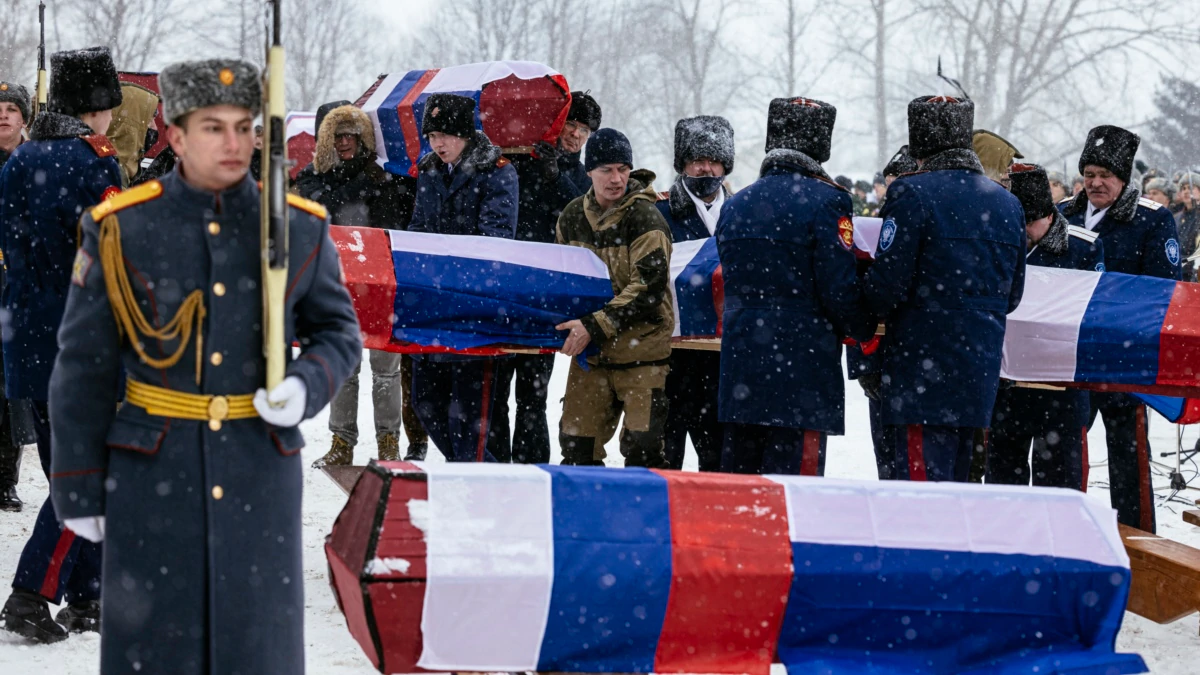
The remains of French and Russian soldiers who died more than 200 years ago during Napoleon’s retreat from Moscow were laid to rest on February 13 in a cemetery in a town in the Smolensk region.
The ceremony in Vyazma, about 200 kilometers west of Moscow, was held to rebury the remains of 126 people killed in one of the bloodiest battles of Napoleon’s Russian campaign in 1812.
French diplomats and representatives of the princes of the Murat family and the imperial house of Romanov attended the ceremony, which took place in a snowstorm and severe frost, RFE/RL’s Russian Service reported.
About 100 reenactors in military uniforms of the period and a company of the guard of honor took part in the event, which included playing the national anthems of France and Russia, a gun salute, and a liturgy by Orthodox and Catholic priests.
The remains of 120 soldiers, as well as three women and three adolescents, were discovered in 2019 by a Russian-French archaeological dig led by Pierre Malinowski, head of the Foundation for the Development of Russian-French Historical Initiatives.
All are thought to have fallen during the Battle of Vyazma on November 3, 1812, at the beginning of the French Army’s retreat from Moscow.
The three women are believed to have provided first aid and kept canteens in the French Army, while the three adolescents are believed to have been drummers.
Inna Demidova, head of the Vyazemsky district administration, said they had been buried in a mass grave.
Prince Joachim Murat, a descendant of one of Napoleon’s most celebrated marshals, called the ceremony a “symbol of mutual respect” between the once-warring sides, according to the French AFP news agency.
The ceremony marked a rare moment of unity between Russia and France at a time of heightened tensions between the European Union and Russia, including the Kremlin’s increasingly harsh crackdown on political opposition.
With reporting by RFE/RL’s Russian Service and AFP
This post was originally published on Radio Free.